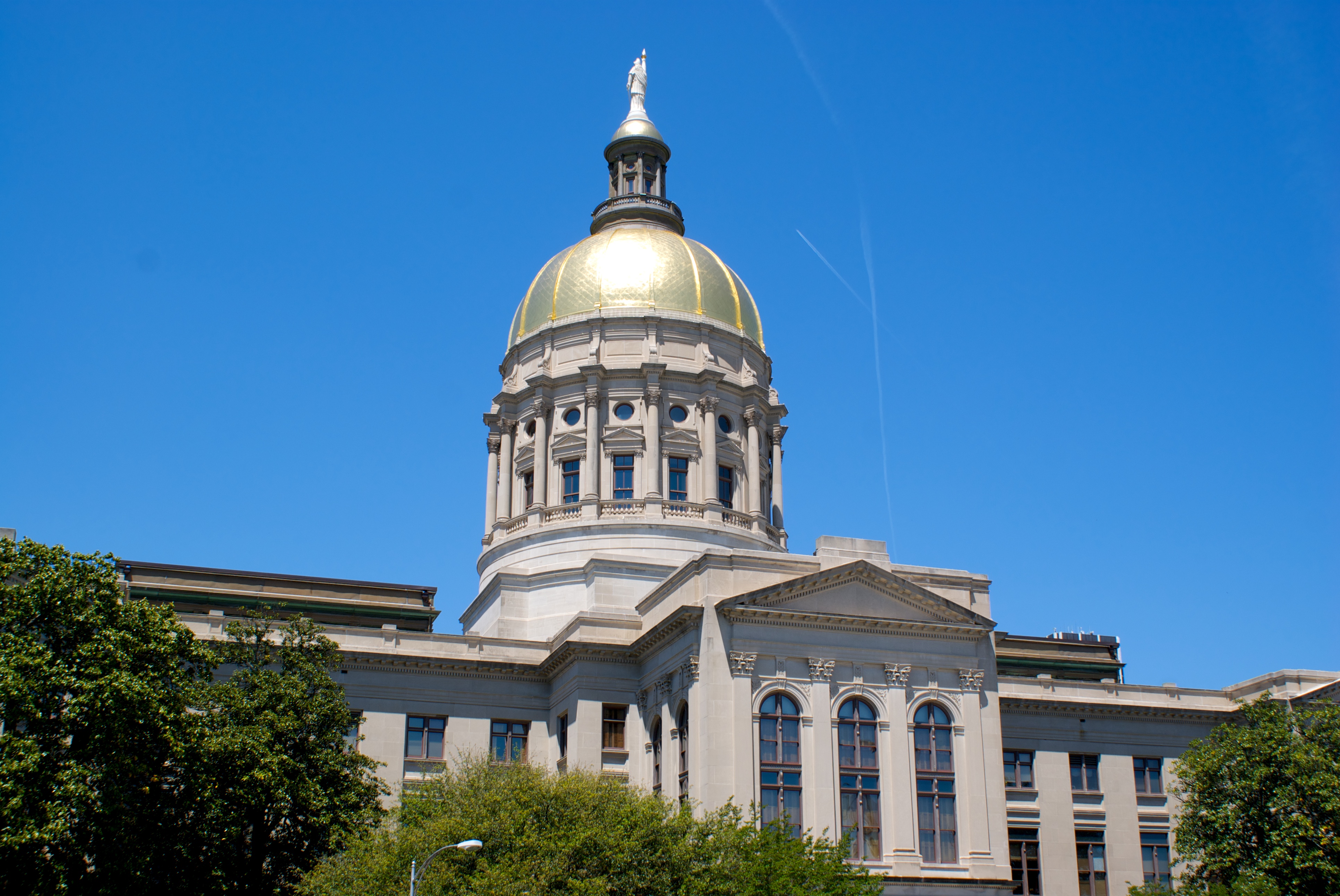
The Georgia General Assembly kicked off on January 12th with Gov. Nathan Deal’s inauguration address highlighting the day. Deal, whose inauguration was forced indoors four years ago due to unfavorable weather, once again lost the battle with Mother Nature as rain thwarted this year’s outdoor festivities. While Deal may have lost this diminutive battle on the first day of the legislative session, the Governor and the Republican majority in the legislature expect to be more successful on key legislative battles during the remaining 39 days of the session. The forthcoming legislative debates on the floor of the Atlanta Capitol should yield a controversial, yet hopefully productive session as lawmakers work to better Georgia.
The cornerstone of every Georgia General Assembly is passing a balanced budget, and this year will be no exception. This undertaking consumes the legislature because the Georgia Constitution, unlike its federal counterpart, mandates that the state produce a balanced budget. While legislators attempt to agree on a suitable allocation of the roughly $20 billion which make up Georgia’s revenue in 2015, many other pressing concerns will also be addressed. Specific to this year’s General Assembly, legislation regarding transportation, medicinal marijuana, and religious rights are expected to come up for debate. All promise to be divisive and controversial.
Georgia’s transportation infrastructure is of particularly high importance this session. Rapid growth, particularly in the metro Atlanta area, coupled with under-funded infrastructure programs has resulted in Atlanta having the 4th worst traffic congestion in the country. While there is a general consensus that something must be done to construct and maintain roads and bridges throughout the state, there remains a great disparity regarding the approaches to pay for these costly solutions. It has been estimated that legislators will need to find an additional $1 billion to $1.5 billion to devote to transportation projects for the upcoming year. The additional revenue that is needed for transportation improvements may come from many different sources instead of just one. Legislators participating in the Joint Study Committee on Critical Transportation Infrastructure Funding identified 12 possibilities as to how to procure such funding. Possibilities include a new statewide tax, an increase in the current gasoline sales tax, and an increase in the number of toll roads across the state. Legislators, specifically Republicans, are wary of raising taxes. This will make the already difficult undertaking of raising roughly $1 billion an even taller order.
Although medicinal marijuana legislation failed to pass during the 2014 Georgia General Assembly, the issue will be debated again during the 2015 session. While other states have passed bills that legalize marijuana use for medicinal and/or recreational purposes, it is not expected that Georgia will follow suit. Instead, lawmakers are considering legislation regarding a marijuana byproduct known as cannabis oil. This byproduct is used strictly for treating epilepsy and seizures, and it does not produce a “high” that is generally associated with the use of marijuana. Marijuana legalization remains an emotionally charged issue whose progression will be interesting to follow throughout the session.
One of the more controversial issues of the 2014 legislative session, the “Religious Freedoms Bill,” is expected to return to the floor in 2015. Introduced during the last session by Senator Josh McKoon (R-Columbus), the supposed intent of the legislation is to protect religious expression from governmental interference. But opponents say that this legislation will allow for discrimination against the lesbian, gay, bisexual, and transgender (LGBT) community in the business place. They have named it a “Right to Discriminate Bill.” The discriminatory nature alone may outweigh the legislation’s positives for many members of the minority party. Additional opposition on both sides of the aisle stems from the fear that the legislation will reflect badly upon the state, thus deterring future business opportunities. McKoon’s 2014 version of this bill was opposed by large corporations including Delta Air Lines, Home Depot, and Coca-Cola, businesses that are staples of Atlanta’s – and Georgia’s – economy.
Alongside these hot-button issues, legislators are also expected to deal with important issues regarding healthcare, casinos, and a proposed change to the minimum age for legislators. In addition, Gov. Deal is expected to promote legislation throughout the session covering myriad areas. Gov. Deal championed public education during his reelection campaign, and it is likely that he will follow up on his campaign promises and propose an education reform bill. The Governor is also likely to continue promoting his criminal justice reforms, which will aim to keep lower-level offenders out of prisons. Furthermore, Deal will push for legislation improving the child welfare system and a reform of the Ethics Commission. The Governor enjoyed a successful working relationship with the legislature throughout his first term, which should continue in the 2015 session.
Often, when it comes to politics, the only thing that you can expect is the unexpected. While the hot-button questions that will be addressed in the Georgia General Assembly are relatively clear, their solutions are far from discernable at this time. Predicting the outcome of these controversial debates is further complicated by the presence of more than two dozen freshman legislators (6 Democrats and 18 Republicans, which in total comprises approximately 10 percent of the voting body) with no established voting record. While the session’s political outcomes may be unforeseeable, it is safe to bet that the next 40 legislative days under the Gold Dome will be a heck of a ride.